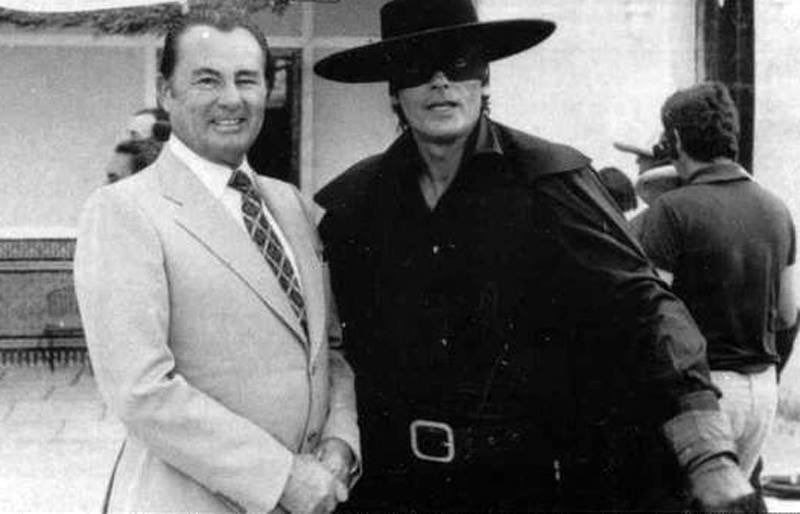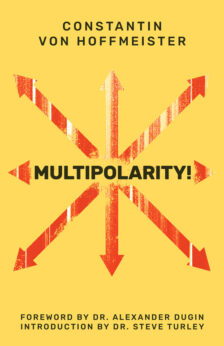The European film industry has lost a great star. On Sunday, Alain Delon passed away at the age of 88. He was one of the most prominent figures in post-war European cinema in the 1950s and 1960s, captivating audiences as an adventurer, rogue, and lover not only on screen but also in his private life, which was rich in scandals, breakups, and affairs.
Less known is the fact that Delon never made a secret of his sympathies for the political right, unlike most of his colleagues, who, for decades, have predominantly been left-leaning, even in France. Brigitte Bardot,1 who repeatedly expressed her solidarity with the former National Front under Jean-Marie Le Pen,2 and Yves Montand3 are the notable exceptions.
By the 1970s and 1980s, Delon supported conservative figures in French politics, such as Valéry Giscard d’Estaing4 and Raymond Barre.5 He continued to stand by his convictions until his later years. As recently as 2014, he voiced his criticism of same-sex marriage and adoption rights for gay couples in the context of the European elections, stating, “because a child needs a father and a mother and must be raised by a father and a mother.” In today’s Europe of the woke and Satanists, such a statement is no longer a given.
Delon’s closeness to Jean-Marie Le Pen became known early on. In 1987, he declared, “We have been friends for many years; I am a great supporter of Jean-Marie Le Pen.” The long-standing friendship between the two was rooted in their shared experiences in the Indochina War.6 Delon had volunteered for the war at the age of 17 after an unsuccessful school career. He survived the Battle of Dien Bien Phu (1954), a devastating defeat for France. When asked whether this experience had influenced his life, he admitted in a 1995 interview: “Of course, I owe everything to the army.”
Delon remained loyal to Le Pen even decades later when Le Pen was ousted from the National Front in 2018 at the behest of his daughter Marine. Delon rightly considered Marine’s actions, aimed at gaining political respectability, a betrayal. “I knew Le Pen before he became famous, so I will not turn my back on him now. One of my undisputed virtues is loyalty to friends,” he confessed.
This loyalty also extended to another “controversial” figure of the European post-war era — the former Walloon Waffen-SS Sturmbannführer7 Leon Degrelle8 (pictured left). Degrelle, who was sentenced to death in absentia in Belgium in 1945, lived in Spain after the war and visited Delon there during the filming of El Zorro (1975) in Aranjuez and Almería. Much later, Delon explicitly rejected the notion that his acquaintance with Degrelle was embarrassing to him. Degrelle, who published several books in the decades after the war and acknowledged his past, was an impressive personality. I had the privilege of meeting him myself in November 1990 in Madrid.
In 2019, Delon suffered a stroke from which he never fully recovered. A statement from his later years suggests that the unforgettable character actor, who considered himself an incorrigible misanthrope, was at peace with himself: “I will leave this world without feeling sad. Life no longer attracts me. I have seen and experienced everything. I hate today’s world, I’ve had enough! I constantly see truly horrible creatures. Everything is false, everything is being replaced. They all laugh at each other without looking at each other! There’s not even respect for one’s word anymore. Only money matters. We hear about crimes all day long. I know that I will leave this world without being sad about it.” He had already succinctly expressed his contempt for the left in the past: “Everyone knows that I deeply despise the communists and have no time for the socialists. In short, I have no use for anyone on the left anymore.”
In films, Delon often played the taciturn, the daredevil, the lone wolf. Both privately and on screen, he embodied a type of masculinity that is now denounced as outdated and “toxic” — but which, in light of the impending upheavals, is poised for a revival. Politically, he took a bold stance, by the standards of the acting profession, and said what needed to be said. He was a non-conformist, a difficult character, a patriot.
On August 18, his children announced to the public that their father had peacefully passed away at his home in Douchy. It is not just European cinema that has suffered a loss — Europe itself has lost a fighter and a voice for the old, authentic Europe.
(translated from the German and annotated by Constantin von Hoffmeister)
Footnotes
Translator’s note: Brigitte Bardot (born 1934) is a legendary French actress, singer, and model, who rose to international fame in the 1950s and 1960s as a sex symbol and cultural icon. In her later years, Bardot became known for her outspoken conservative views and strong support for animal rights.
Trans. note: The phrase “the former National Front” is used because the party, initially led by Jean-Marie Le Pen, was rebranded as the National Rally by his daughter Marine in 2018. Jean-Marie was ousted in 2015 following a series of controversial remarks, including about the Holocaust, as part of Marine’s strategy to broaden the party’s appeal. From Jean-Marie’s perspective, his expulsion was the result of his refusal to compromise on the party’s core values. He saw it as a betrayal of the principles that had shaped the National Front under his leadership.
Trans. note: Yves Montand (1921–1991) was a famous French-Italian actor and singer, initially known for his left-wing associations. However, by the 1970s, after witnessing the harsh realities of Soviet-style communism, he distanced himself from those views and expressed sympathies for conservative positions.
Trans. note: Valéry Giscard d’Estaing (1926–2020) served as the President of France from 1974 to 1981. A centrist with conservative views, he was known for modernizing the French economy and implementing social reforms while maintaining a strong commitment to European integration.
Trans. note: Raymond Barre (1924–2007) served as Prime Minister of France from 1976 to 1981 under President Valéry Giscard d’Estaing. Known for his economic expertise, Barre implemented austerity measures and economic reforms to reduce inflation and stabilize the French economy during a time of economic difficulty.
Trans. note: The Indochina War (1946–1954) was a conflict between French colonial forces and the Viet Minh, a communist-led nationalist movement in Vietnam seeking independence. The war ended with the decisive Battle of Dien Bien Phu, leading to the Geneva Accords, which resulted in the withdrawal of French forces and the division of Vietnam into North Vietnam, controlled by the communists, and South Vietnam, backed by the West.
Trans. note: Sturmbannführer was a paramilitary rank in the SS, equivalent to the rank of Major, used during World War Two to designate mid-level officers in charge of battalions or units.
Trans. note: Léon Degrelle (1906–1994) was a Belgian politician and founder of the Rexist Party, which focused on social justice, Catholic values, and Belgian nationalism. During World War Two, Degrelle became an ardent supporter of fascism and collaborated closely with National Socialist Germany, believing in the ideals of a united Europe under an anti-communist regime. He developed a close relationship with Adolf Hitler, who admired Degrelle’s zeal and reportedly stated that if he had a son, he would want him to be like Degrelle.







